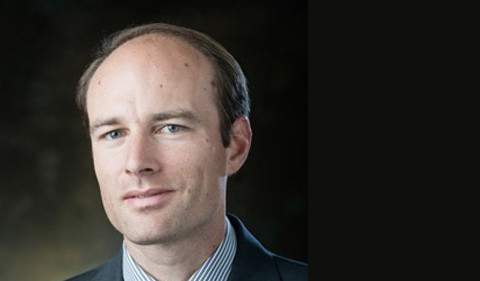
Dr. Ingo Trauschweizer
By Ingo Trauschweizer
Director of the Contemporary History Institute
This summer, I took on the directorship of the Contemporary History Institute, fueled by the desire to build further upon the tradition of excellent scholarship, fellowship, training, and education that CHI has offered to the university and the wider community since the 1980s. CHI, which links history, political science, economics, and journalism, adds tremendous luster to the university and, as I had hoped when I applied for a teaching position at Ohio in 2008, I have found my intellectual home at the Institute. I know that I have much to learn, but I can build on valuable experience gained in working in multidisciplinary settings here at Ohio University, at the European University Institute, and at Norwich University, where I co-directed the Center for the Study of War and Peace about a decade ago. I am thrilled to lead a unique institute that allows us to explore how the past informs the present, what questions we should ask, and what advice we could provide to those who make policy that affects us all.
CHI fills important roles for the campus and the Athens community. Our most visible events, the annual speaker series and the Baker Peace Conference each spring, complement our mission in postgraduate training and education. The latter is founded in a seminar series, and we have been fortunate to provide fellowships to many excellent M.A. and Ph.D. students over the years.
The speaker series brings renowned and rising scholars to Ohio University—or features our own—roughly once a month during the fall and spring semesters. This fall, look for Neilesh Bose (on the end of World War II in India and contested history and memory of the event) on Sept. 21, Stephen Porter (on humanitarianism and the perceptions of U.S. foreign policy overseas) on Oct. 19, Karen Greenberg (on the effects of the war on terror on civil liberties and national security) on Nov. 2, and Steven Miner (on the Soviet experience in World War II) on Dec. 7.
The Baker Peace Conference, on March 22 and 23, 2018, will consider the relationship of populism and the media, a theme triggered by recent trends in the western world, but also one that has deep roots going back for centuries. I hope these events will help strengthen younger and dynamic centers and themes in which students and faculty explore shared interests in war and peace, wealth and poverty, the environment, science and technology, law and justice, political culture, and a range of other issues that define our time and pose grave challenges as well as exciting opportunities in the twenty-first century. M.A. and Ph.D. students from across the university who are interested in these issues are invited to join our two-semester seminar sequence that explores methods, themes, and issues in contemporary history.
Since its founding over three decades ago, CHI has been primarily committed to the training and education of graduate students, many of whom have gone on to stellar careers in universities, government service, public history and policy, business, and administration. I intend to keep up the quality of our program that has allowed so many of our students to thrive, and I want to continue to add to the diverse and truly outstanding list of speakers at our public events. But, of course, a change in leadership also offers the opportunity to consider adjustments that will allow us to grow and prosper.
This year, we have launched a pilot program for a graduate assistant, who will project our message and advertise our events on social media as well as help us maintain strong ties to our alumni. Another area where CHI could help enhance Ohio University’s profile is undergraduate education. While our public events attract the best and brightest of our undergraduate students, format and timing of the lectures don’t always work for those who are most interested. This year, we will add workshops, roundtables, and less formal events to allow students and visiting scholars to engage in an active conversation. We will also organize faculty and graduate-student led workshops on pressing contemporary issues.
I am inviting the entire campus community—students, faculty, staff, and administrators—to ask questions and propose events. Our success depends on your engagement and your engagement will be one of the great rewards of my new job.



















Comments